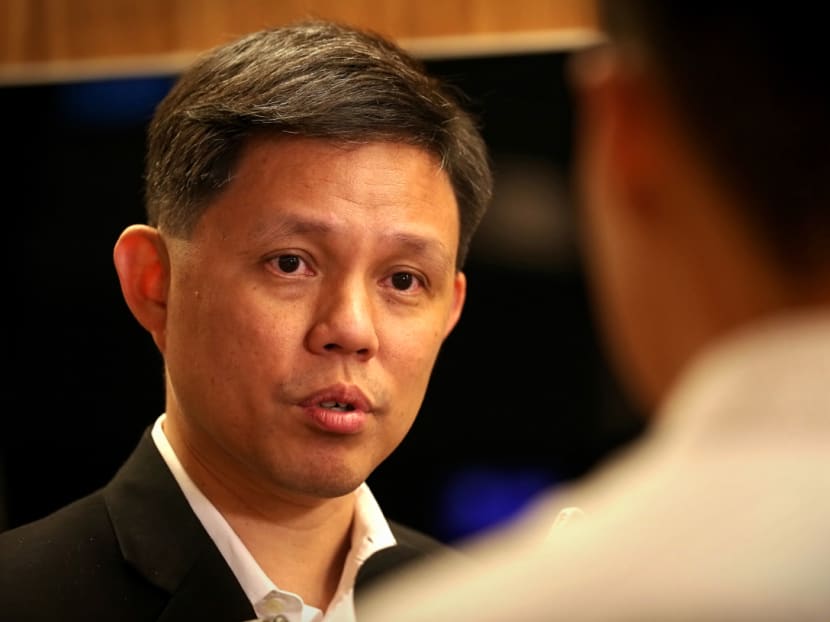Global economic risks have worsened, Singaporeans need to brace for challenges ahead: Chan Chun Sing
SINGAPORE — The global economic situation has worsened following China’s latest retaliation in its escalating trade war with the United States. This could pose significant challenges for Singapore’s economy in the coming months, Trade and Industry Minister Chan Chun Sing said on Tuesday (May 14).

Trade and Industry Minister Chan Chun Sing said that it was still too early to say if the latest hike in tariffs that China and the United States have imposed on each other would lead to price increases for everyday items or a recession in Singapore.
SINGAPORE — The global economic situation has worsened following China’s latest retaliation in its escalating trade war with the United States. This could pose significant challenges for Singapore’s economy in the coming months, Trade and Industry Minister Chan Chun Sing said on Tuesday (May 14).
On Monday, China said that it would impose tariffs on US$60 billion worth of US goods from June 1, in retaliation to US president Donald Trump’s decision to slap higher tariffs on US$200 billion worth of Chinese imports last week.
There were hopes that negotiations between the world’s two largest economies — underway since December last year — would lead to a trade deal. However, these appear to some observers to have all but disappeared with the latest tit-for-tat salvos from both parties.
Stock markets around the globe have suffered heavy falls as the trade war escalates.
Speaking to reporters on the intensifying trade tensions, Mr Chan said: “What we can certainly say is that for the global economy, the downside risks have just increased. So we must make sure that we continue to watch this very carefully, and make sure that we make our moves carefully to position ourselves well.
“So, for the rest of the year, I think we must not underestimate the challenges that the global economy will face.”
Mr Chan was speaking on the sidelines of a maritime security conference held at the JW Marriott Hotel.
While the initial hike in tariffs imposed by the US applied only to steel, aluminium and other goods, subsequent hikes have extended to more everyday consumer items such as meat, vegetables and sneakers.
When asked if this will mean that prices of everyday goods will increase here, given that Singapore imports most of its goods, Mr Chan said that it is still too early to tell.
“I don't think we are just looking at the direct impact between the US and China. But when the US and China trade patterns shift, there will also be a knock-on impact, the indirect impact on the rest of the global economy — that part is much harder to estimate,” he said.
After months of issuing threats and imposing tariffs on specific goods, the trade dispute began in earnest in July last year when both the US and China imposed US$34 billion in tariffs.
Mr Chan told Parliament then that Singapore, being so heavily plugged into global supply chains, may be indirectly hit by the trade war.
On whether the latest actions by these two countries would lead to a recession in Singapore, Mr Chan said that it’s “early days”.
However, he emphasised that the urgent task now is to position Singapore’s economy to seize any opportunities that may arise out of this dispute and to continually increase the capabilities of the businesses and workers here.
This is so that "we can continue to present the strongest value proposition to investors to come here to create jobs for Singaporeans”, he added.
Besides increasing their capabilities, Mr Chan said that companies here also must continue to diversify into different sectors and markets, so that they are “never held ransom” by any one sector.
MORE PARTNERSHIPS
Mr Chan said that the Government, for its part, is trying to expand the number of free trade agreements and digital economic partnerships it has with other countries.
“This integration of the global digital economy is especially important for Singapore, so that we can seize the opportunity and not risk being shut out by the other players in a global system,” he said.
Mr Chan also said that the inability of both the US and China to iron out a trade deal reflects the deepening tensions between the two countries.
He noted that how both countries view and relate to each other have changed significantly.
“Many in the US — on both the Republican side and Democrats side, people who are in and out of government — have changed their views on how they see China. Many of them see China as a strategic competitor,” he said.
“On the other hand, on the Chinese side, many of the Chinese are wondering if the US will work to thwart their growth and development. So these are very fundamental issues that both of them need to resolve.”
The US accuses China of using unfair tactics, such as state support for domestic businesses, to achieve a trade surplus with the US. It also claims China steals US intellectual property.











